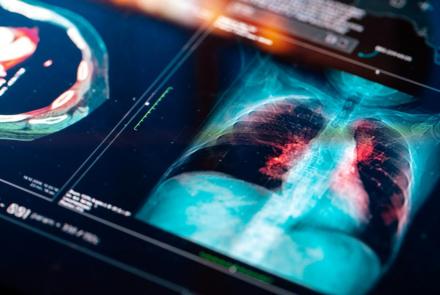After a person has a heart attack or after a major cardiac procedure, cardiac rehabilitation (rehab) is an important part of the recovery process. Cardiac rehab helps a patient to return more quickly to normal and often improved function. It can help prevent another heart attack and help in learn heart-healthy habits.
“Cardiac rehab helps patients improve their cardiovascular fitness and quality of life, and has been shown to reduce readmission to the hospital,” said Duane Bryan, MD, Chief Medical Director of Nuclear Cardiology at Montefiore Nyack Hospital. “Studies show cardiac rehab reduces morbidity and mortality from heart-related diseases.”
The behavioral modification aspect of a cardiac rehab program results in patients having better blood pressure, lower cholesterol levels, and improvement in their diabetes control, Dr. Bryan noted.
Who Can Benefit From Cardiac Rehab?
A person who has had a heart attack or a heart procedure such as bypass surgery or a stent is a good candidate for cardiac rehab. “It’s also open to other people with heart problems, such as a history of heart failure or angina related to heart disease,” he said. “Unfortunately less than 30% of people truly eligible for the program end up participating”.
Cardiac rehab features an individualized exercise program, usually three times a week for up to 12 weeks. “A person may start off with 15 minutes of aerobic activity, and ideally build up to 30 to 45 minutes,” he said. Each patient’s exercise program is devised by an exercise physiologist, under the supervision of a board-certified cardiologist.
The program also includes education about nutrition, smoking cessation, and stress reduction—all keys to a healthy heart. “Each patient’s needs and goals are different,” Dr. Bryan said. “The program is tailored to each individual to achieve the maximum benefit.”
After the initial three-month period, patients can continue with a maintenance program, for a fee that is usually not covered by insurance.
Lifestyle changes are a key component of cardiac rehabilitation. Approximately 90% of the risk of heart disease is related to physical activity, diet, and stress, with only 10% related to genetics. One recent large study found patients who were hospitalized for heart conditions or procedures who participated in cardiac rehab had a 58% lower death rate one year later, and a 34% lower death rate five years later, compared with similar heart patients who didn’t go through the program.
The Cardiopulmonary Rehabilitation Center opened, in conjunction with Burke Rehabilitation Hospital, in early 2020 and accepts referrals from the Patient’s cardiologist or primary care physician. Many insurance plans such as Medicare provide Cardiac Rehabilitation services for their beneficiaries. However, benefits may vary from plan to plan. Thus, patients must be sure to confirm their coverage benefits and financial responsibility with their Insurance carrier(s) prior to enrolling in our Cardiac Rehabilitation program. Located on the ground floor of Montefiore Nyack Hospital, the 2,500 square-foot facility features the latest exercise equipment, locker and changing area, and a new parking area with designated parking spaces. For more information, call 845-348-7500.






